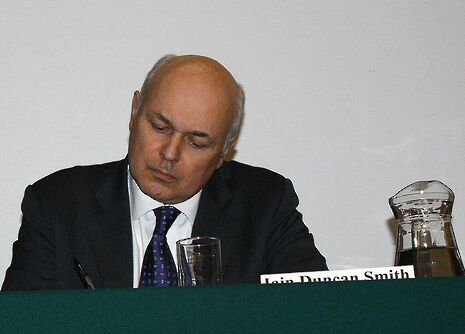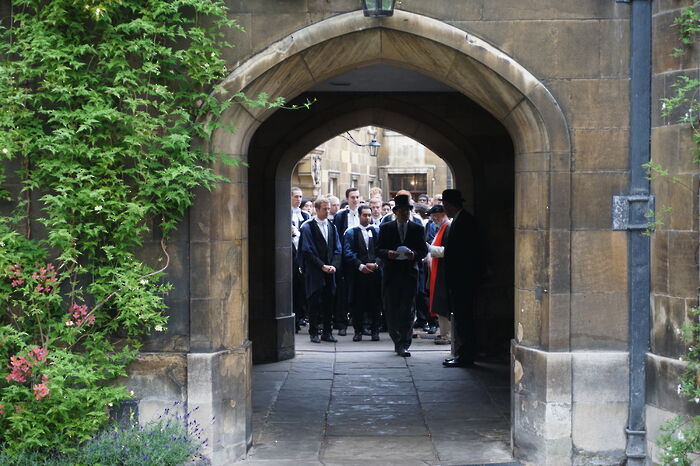IFS child poverty report exposes the cruelty of the Tory welfare policy
In the wake of the IFS’ report, Charlotte Lillywhite dismantles the Tories misleading rhetoric and counter-productive policies

The Institute for Fiscal Studies’ report on child poverty, released last week, has exposed the lies at the heart of the Tories’ recent reforms of the welfare system. Such changes have involved merging six separate benefits into a Universal Credit system which, alongside tax credits. The child benefit part is limited to the first two children in a family. This is revealed as the organisation predicted that 37% of children will be living in poverty by 2022. Under the weight of this, Theresa May’s sarcastic claim that there is no ‘magic money tree’ unravels. Surely what does take some sort of disturbing magic is the ability to undo thirteen years of Labour’s work, in cutting child poverty to under 30%, bringing it right back up to its highest point since modern records began in 1961.
The government claims that this will ‘incentivise’ people to work. Yet leaving families unable to survive doesn’t encourage them into jobs, it forces them into dire situations which the welfare system was designed to prevent. Evidently, the Conservatives believe ‘forcing’ is synonymous with ‘incentivising’ because conceding to the Tory vision of how people should live is obviously the only viable solution.
"Ultimately, just because a welfare system exists, it doesn’t mean we should assume the efficacy of it"
Place the magnifying glass closer and you uncover the truth behind this exterior of ‘encouraging’ self-sustainment, exposing a labyrinth of loopholes through which the Tories exploit the poor. Even before its introduction, funding for universal credits was drastically slashed, while the inbuilt 42-day wait before families can receive these credits again exposes this deceit. How does forcing a family into debt, by suddenly cutting their income, magically equate to peacefully encouraging them into work? What about the families who are literally unable to work? Nobody can claim that these are just the unfortunate side effects of new reforms, particularly after the charity Mind proved the inefficacy of this in 2016. In their survey, 83% of people with mental health issues stated that blackmailing them into work by threatening to reduce their benefits not only worsened their mental health, but rendered them less able to work.
The poison of Tory rhetoric lies at the root of this shameful exploitation. It’s almost laughable how unashamedly obvious this is, when a Conservative spokesperson discussing the reforms stated that they are “committed to … making the welfare system fair for those who pay for it and those who benefit from it”. Predictably, the wealthier families who “pay” for the system come first, preceding the idea that the poorest families “benefit from” it, very subtly but very carefully making it sound like a luxury rather than a means for survival.
The actions of the government are the physical manifestation of this, at-times, subtler malicious rhetoric, and children are now the victims of this hidden agenda, where the poor are only helped through the secondary effects of aiding the wealthy. This is clear when their proposed vision of helping vulnerable families involves cutting taxes, neglecting the fact that the poorest families rely on benefits, not earnings, for their income. Used this way, the welfare system only serves to prop up Tory propaganda.
Therefore, given their track record, this situation shouldn’t be shocking. What do we expect in a culture which stigmatises ‘help’ to cut off the poor from the very pathways which should aid social mobility? The deceitful treatment they receive conveys the message that they don’t have the right to take up space, passed down to the children who should be the key to breaking this vicious cycle. Great, Russell Group universities can raise funding for outreach programmes, but if these children are made to feel as if they don’t belong in these places, there is little perceived reason to apply in the first place. The power of prejudice shouldn’t be underestimated, because if money were the only enabler of social mobility then tuition fee-free Scottish universities wouldn’t have the lowest proportion of poor students.
Ultimately, just because a welfare system exists, it doesn’t mean we should assume the efficacy of it – if we make such assumptions, then any failure is immediately blamed on those who rely on this system, and such attitudes not only further marginalise them but also allow the government to silently force them into situations under the guise of ‘encouragement’. As more children are shunted into poverty by these dishonest reforms, Theresa May’s fresh-faced promise to help those “just about managing” becomes even more ridiculous. The poorest families in our society aren’t a pawn to be traded in for more votes, then cruelly dealt with behind closed doors
 News / Right-wing billionaire Peter Thiel gives ‘antichrist’ lecture in Cambridge6 February 2026
News / Right-wing billionaire Peter Thiel gives ‘antichrist’ lecture in Cambridge6 February 2026 Features / From fresher to finalist: how have you evolved at Cambridge?10 February 2026
Features / From fresher to finalist: how have you evolved at Cambridge?10 February 2026 Film & TV / Remembering Rob Reiner 11 February 2026
Film & TV / Remembering Rob Reiner 11 February 2026 News / Churchill plans for new Archives Centre building10 February 2026
News / Churchill plans for new Archives Centre building10 February 2026 News / Epstein contacted Cambridge academics about research funding6 February 2026
News / Epstein contacted Cambridge academics about research funding6 February 2026










